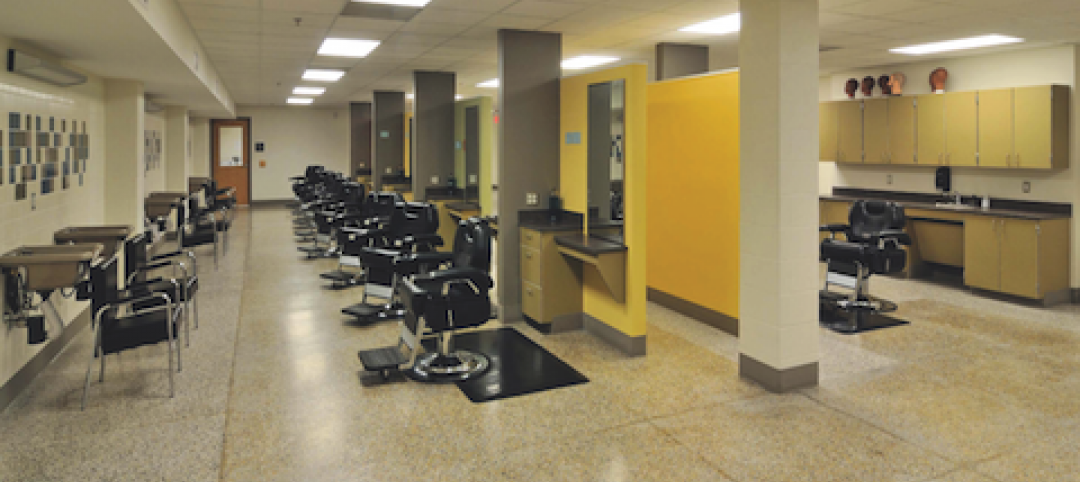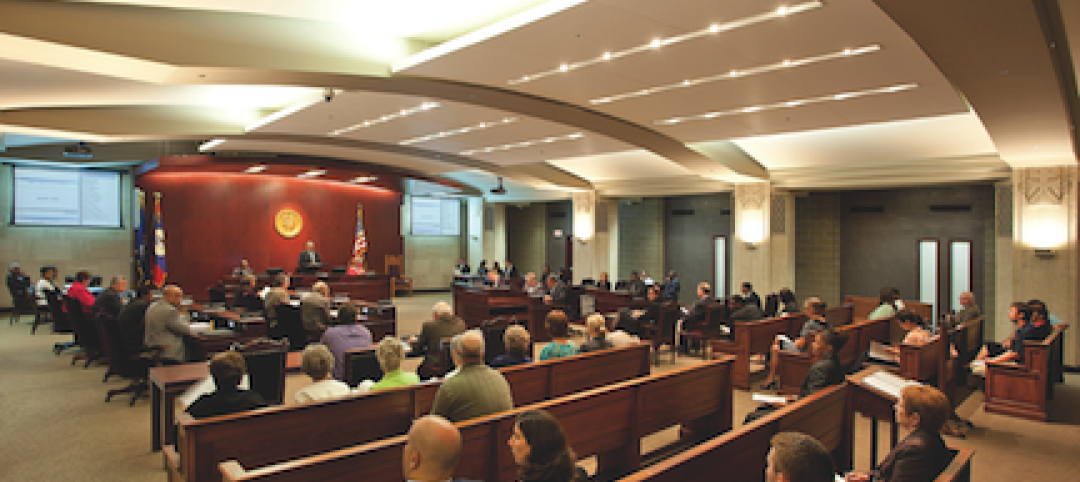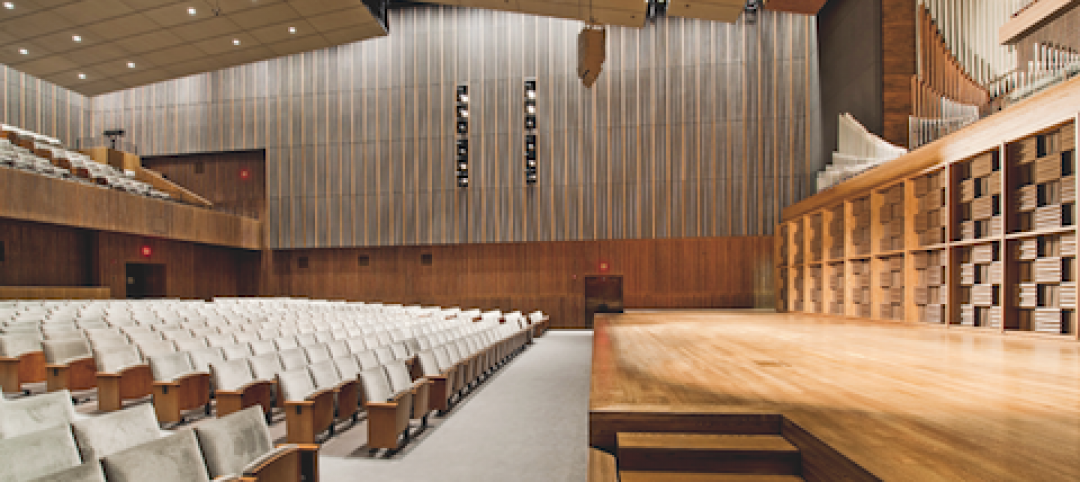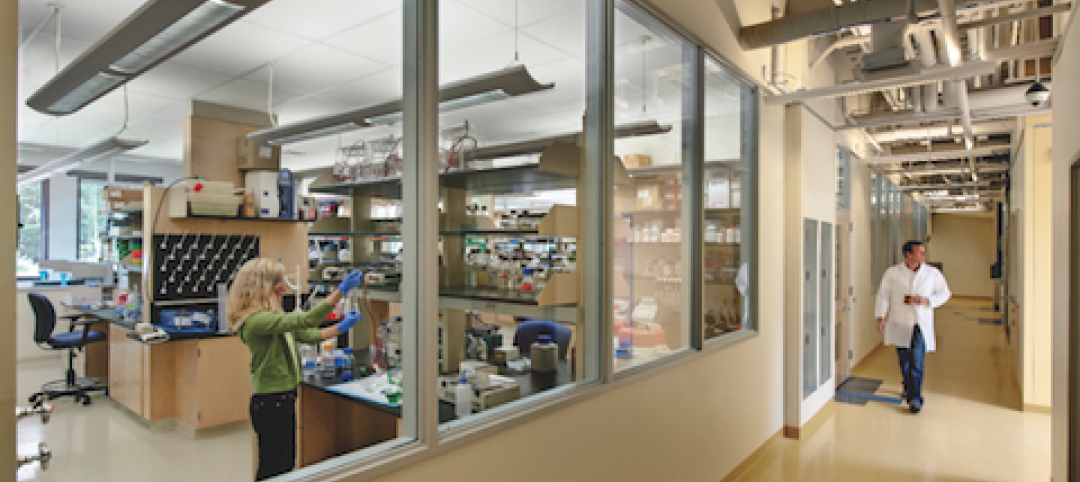Women account for nearly 47% of America’s workforce, according to the Bureau of Labor Statistics. But they represent less than 9% of all construction workers.
One of the women in the field is Doreen DiPolito, the 48-year-old president and owner of D-Mar General Contractors in Clearwater, Fla., where she’s been working since 2001. DiPolito has four women workers out of the 15 to 25 people she employs, depending on the time of year. And she’s been having trouble finding HVAC subs.
At a time when a recovering construction industry is facing shortages in many trades, DiPolito is on a mission to encourage women to at least consider construction as a career.
“When a big contract comes to town, I shouldn’t have to partner with one of the large contracting companies in order to get a piece of the set-aside work. But that’s how it still is, and I don’t think that’s right.” —Doreen DiPolito
“With the economic turnaround in Florida and other parts of the country, women owe it to themselves to explore construction career, which offer better earning and advancement potential than many lower-paid, traditionally female-dominated jobs,” she tells BD+C.
Her own experience tells her that women are capable of doing any construction work. A single parent of three, including a special-needs child, DiPolito started out as a mechanical engineer with Honeywell. She joined D-Mar to help out her former mother-in-law when her husband, D-Mar’s owner, died. In 2006, DiPolito earned her Florida General Contractor certificate.
She concedes that construction is not a profession that kids are pushed toward. So her solutions to the industry’s labor shortage problem includes educating girls in middle and high school about alternative career options. She would also like to see vocational and technical schools expand their outreach and access to women students.
However, the biggest obstacle to more women entering the construction field may be the reluctance of parents or counselors to recommend that field. “Construction has gotten a bad rap. But what happens in this country if these skills, like masonry or electrical, disappear?”
DiPolito has put herself forward on this topic because of what she sees as the industry’s systemic gender discrimination, which she says she’s experienced first hand. “When a big contract comes to town, I shouldn’t have to partner with one of the large contracting companies in order to get a piece of the set-aside work. But that’s how it still is, and I don’t think that’s right.”
DiPolito is realistic about the chances that her advocacy is going to result in any immediate changes in the industry’s hiring practices. But she’s taking the longer view in her hope that any influence she might wield will alter the perspective of younger generations about construction.
And she’s not acting in isolation, either. About a year ago, Ashley Schmidt, a business development manager for SmithGroupJJR in Washington D.C., formed a committee to create The Women in Healthcare group, for the purpose of promoting the development of AEC females in the healthcare sector through mentoring and sharing successful techniques, leads, contacts, products, and services.
The group, which covers the Delaware/Maryland/Virginia area, now has a board of directors, and has grown to more than 200 members, according to Brenna Costello, AIA, EDAC, a Principal at SmithGroupJJR. Among the group’s functions are networking and educational events such as the one scheduled for September 17 at Holy Cross Hospital in Germantown, Md., a $202 million facility that opened in 2014. Annice Cody, president of Holy Cross Health Network, and Lora Schwartz, Principal Consultant for CBRE Healthcare, are scheduled to speak about strategic planning and forecasting methodologies.
“The role of our group is to expand and empower,” says Costello, noting that more than 50% of undergraduate degrees are now earned by women.
Related Stories
| Oct 13, 2010
HQ renovations aim for modern look
Gerner Kronick + Valcarcel Architects’ renovations to the Commonwealth Bank of Australia’s New York City headquarters will feature a reworked reception lobby with back-painted glass, silk-screened logos, and a video wall.
| Oct 13, 2010
Community center under way in NYC seeks LEED Platinum
A curving, 550-foot-long glass arcade dubbed the “Wall of Light” is the standout architectural and sustainable feature of the Battery Park City Community Center, a 60,000-sf complex located in a two-tower residential Lower Manhattan complex. Hanrahan Meyers Architects designed the glass arcade to act as a passive energy system, bringing natural light into all interior spaces.
| Oct 13, 2010
Community college plans new campus building
Construction is moving along on Hudson County Community College’s North Hudson Campus Center in Union City, N.J. The seven-story, 92,000-sf building will be the first higher education facility in the city.
| Oct 13, 2010
County building aims for the sun, shade
The 187,032-sf East County Hall of Justice in Dublin, Calif., will be oriented to take advantage of daylighting, with exterior sunshades preventing unwanted heat gain and glare. The building is targeting LEED Silver. Strong horizontal massing helps both buildings better match their low-rise and residential neighbors.
| Oct 12, 2010
Holton Career and Resource Center, Durham, N.C.
27th Annual Reconstruction Awards—Special Recognition. Early in the current decade, violence within the community of Northeast Central Durham, N.C., escalated to the point where school safety officers at Holton Junior High School feared for their own safety. The school eventually closed and the property sat vacant for five years.
| Oct 12, 2010
Guardian Building, Detroit, Mich.
27th Annual Reconstruction Awards—Special Recognition. The relocation and consolidation of hundreds of employees from seven departments of Wayne County, Mich., into the historic Guardian Building in downtown Detroit is a refreshing tale of smart government planning and clever financial management that will benefit taxpayers in the economically distressed region for years to come.
| Oct 12, 2010
Owen Hall, Michigan State University, East Lansing, Mich.
27th Annual Reconstruction Awards—Silver Award. Officials at Michigan State University’s East Lansing Campus were concerned that Owen Hall, a mid-20th-century residence facility, was no longer attracting much interest from its target audience, graduate and international students.
| Oct 12, 2010
Gartner Auditorium, Cleveland Museum of Art
27th Annual Reconstruction Awards—Silver Award. Gartner Auditorium was originally designed by Marcel Breuer and completed, in 1971, as part of his Education Wing at the Cleveland Museum of Art. Despite that lofty provenance, the Gartner was never a perfect music venue.
| Oct 12, 2010
Cell and Genome Sciences Building, Farmington, Conn.
27th Annual Reconstruction Awards—Silver Award. Administrators at the University of Connecticut Health Center in Farmington didn’t think much of the 1970s building they planned to turn into the school’s Cell and Genome Sciences Building. It’s not that the former toxicology research facility was in such terrible shape, but the 117,800-sf structure had almost no windows and its interior was dark and chopped up.
| Oct 12, 2010
The Watch Factory, Waltham, Mass.
27th Annual Reconstruction Awards — Gold Award. When the Boston Watch Company opened its factory in 1854 on the banks of the Charles River in Waltham, Mass., the area was far enough away from the dust, dirt, and grime of Boston to safely assemble delicate watch parts.

















